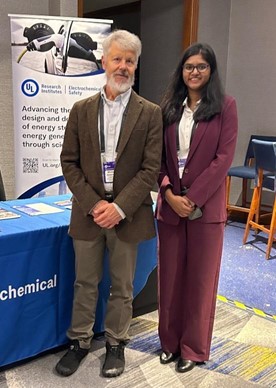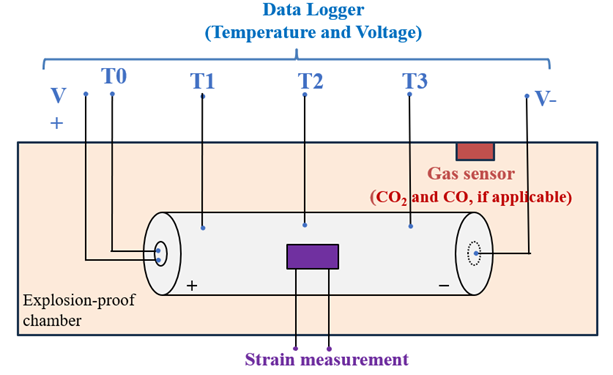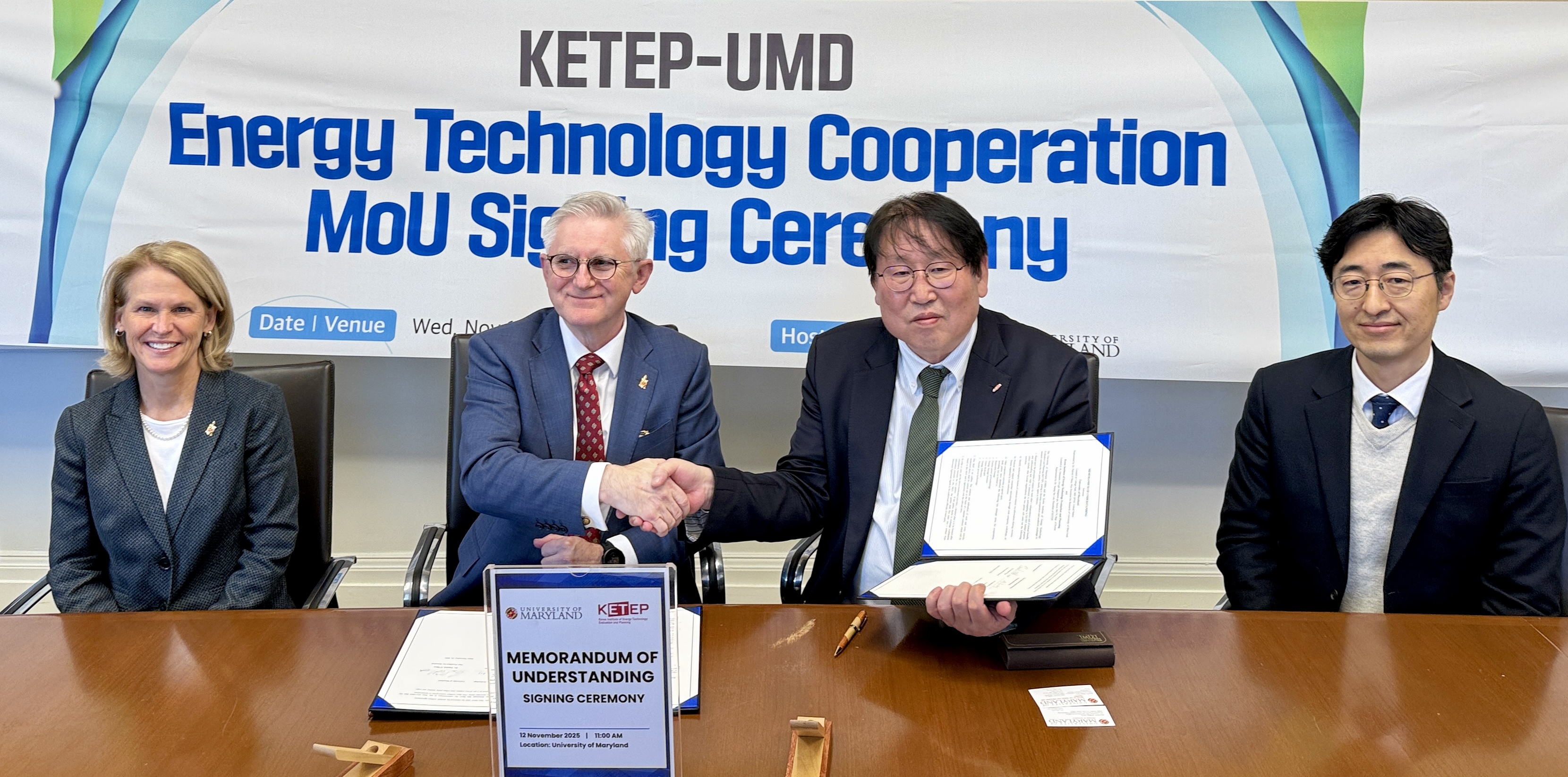News Story
CALCE Receives ULRI Research Award for Thermal Runaway Prevention in Batteries

Dr. Michael Osterman and PhD student Sahithi Maddipatla at the UL Research Institutes 2024 Annual Research Symposium, Atlanta, GA
UL Research Institutes (ULRI) is an organization dedicated to advancing safety science and research. Its “Protecting Human Health and Safety in the Modern World” program aims to bring together leading researchers and experts to address critical safety challenges and develop solutions that can make a real difference in people’s lives. These research projects are expected to foster innovation and drive progress in safety science across various domains.
The CALCE team, led by Prof. Michael Pecht (with co-PIs Dr. Michael Azarian, Dr. Diganta Das, and Dr. Michael Osterman), has been awarded a research grant to investigate “Strain Sensors for Early Detection of Gas Generation for Thermal Runaway Prevention” after a competitive selection process. This project is geared toward finding the causes of and preventing battery-related hazards with early warning methodologies.
The number of reported lithium-ion battery accidents has risen significantly from 734 in 2020 to 2,407 in 2023, highlighting growing safety concerns associated with increased battery adoption. In New York City alone, the number of battery fires has also escalated, with reports indicating 22 fires in 2020, 104 in 2021, 216 in 2022, and 270 in 2023. Early detection of thermal runaway precursors is critical for implementing effective safety measures.
 The technical goal of the project is to detect the onset of thermal runaway prior to gas venting, as there is little time to “act” to suppress thermal runaway by the time such venting occurs. CALCE’s goal is to provide a capability to either prevent thermal runaway or, at a minimum, enable mitigation methods to be activated, thereby reducing the impact of thermal runaway in lithium-ion batteries and enabling evacuation in situations where prevention is not feasible.
The technical goal of the project is to detect the onset of thermal runaway prior to gas venting, as there is little time to “act” to suppress thermal runaway by the time such venting occurs. CALCE’s goal is to provide a capability to either prevent thermal runaway or, at a minimum, enable mitigation methods to be activated, thereby reducing the impact of thermal runaway in lithium-ion batteries and enabling evacuation in situations where prevention is not feasible.
This project focuses on using strain sensors to detect early signs of possible thermal runaway in lithium-ion batteries. We expect to show that strain sensors can identify gas generation before venting, offering a valuable early warning system for detecting thermal runaway. The goal is to develop a cost-effective method to detect the onset of thermal runaway early enough to activate mitigation measures, reducing the risk of fires or explosions.
 Controlled experiments will be conducted on different battery formats and chemistries to induce thermal runaway through external heating and overcharging. During these experiments, strain, voltage, and temperature will be monitored to identify critical thresholds and behavior patterns. Suitable machine learning algorithms will be developed to analyze strain data and identify thermal runaway precursors, distinguishing normal battery behavior from precursors to dangerous conditions.
Controlled experiments will be conducted on different battery formats and chemistries to induce thermal runaway through external heating and overcharging. During these experiments, strain, voltage, and temperature will be monitored to identify critical thresholds and behavior patterns. Suitable machine learning algorithms will be developed to analyze strain data and identify thermal runaway precursors, distinguishing normal battery behavior from precursors to dangerous conditions.
For more information about the event or on research, please contact Prof. Michael G. Pecht.
Published October 14, 2024








